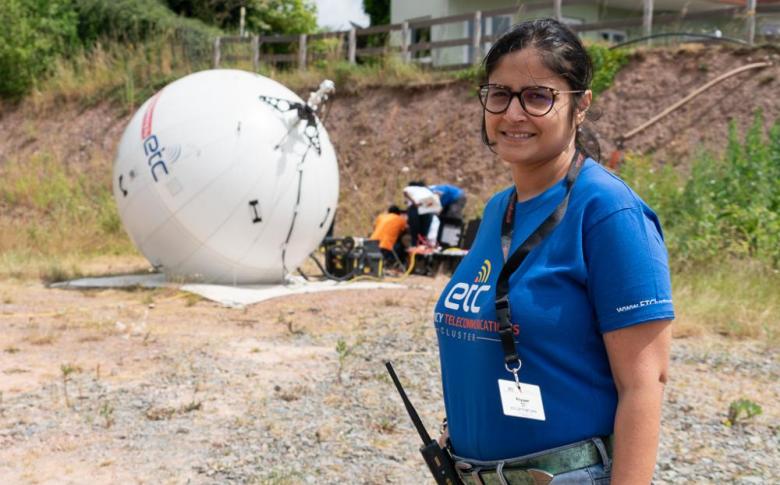Meet the woman driving ETC's flexible new learning options for changing times

She’s a driving force behind the Emergency Telecommunications Cluster’s (ETC) training initiatives and over the past year, Priya Arora and her team have been busy testing and launching a new blended approach to the ETC’s learning and development portfolio. Read on for what to expect from an ETC learning experience and what’s on the horizon.
When we think of ETC training, simulations like gear.UP come to mind, but not online learning. Why is the ETC going online?
Virtual teaching modalities have been gaining popularity over the last few years with greater use of technology in all fields. Online learning offers many benefits including low cost of delivery and the opportunity to reach a wider audience.
In 2020, the Global ETC began working towards strengthening our online presence with plans to deliver some content through various online approaches. The COVID-19 pandemic pushed us to speed up these plans as it affected classroom-based training delivery. We have now adopted a blended approach towards our learning activities where online self-paced learning will provide a foundation and will be supplemented with in-class training.
Given the nature of ETC’s work, physical trainings and classroom deliveries are essential to ensuring that participants get an opportunity to practice and apply their learning, as well as to network and share experiences and we will continue to host annual training at a Global-level relating to ETC’s key services and activities
Our primary aim with moving online is to allow learners to gain essential knowledge relevant to their work and to build awareness about the ETC through online modules, courses, and webinars.
Can these self-paced courses be useful for humanitarians who are not part of an ETC operation? If so, how?
Yes, a lot of these self-paced courses will be useful for all those responding to emergencies as they cover areas including a broad look at the humanitarian landscape – the various actors, legal frameworks, types of disasters, the Cluster approach and more.
We also delve into the concept of preparedness, the preparedness life cycle, and preparedness work that ETC undertakes in-country.
The courses are not only relevant to those engaged in ETC operations. In fact, they build the knowledge of those involved in any emergency response or preparedness operation, or those who may interact with the ETC in the field.
What are your longer-term goals for the ETC’s learning and development?
We would like our learning activities to reach more people in the regions and at field level by supplementing Global ETC training packages with Training of Trainers (ToTs) sessions in addition to continuing to build our online presence.
We also see a lot of value in periodically assessing the requirements in the field and adapting our learning products to meet changing needs.
Building specific learning pathways for different ETC responder profiles would also be useful for supporting career growth and skills boosting.
What motivates you to do this learning and development work?
I believe in learning and development as critical functions of any organisation because they help align bigger objectives to an employee’s own goals and performance. Given the environments we work in, learning activities hugely contribute to preparing employees for what to expect from field conditions. Given the technical nature of the ETC’s work, training also keeps people’s skills up to date and maintain their motivation – after all, when you’re learning, you’re growing and improving.
On the personal front, I feel immense pride in the work that ETC does. It is a great feeling to know that the work we do behind the scenes has an impact and supports our staff who are directly involved in providing services in difficult and sometimes volatile field conditions. I feel I’m contributing to the bigger goal of saving lives and changing lives.